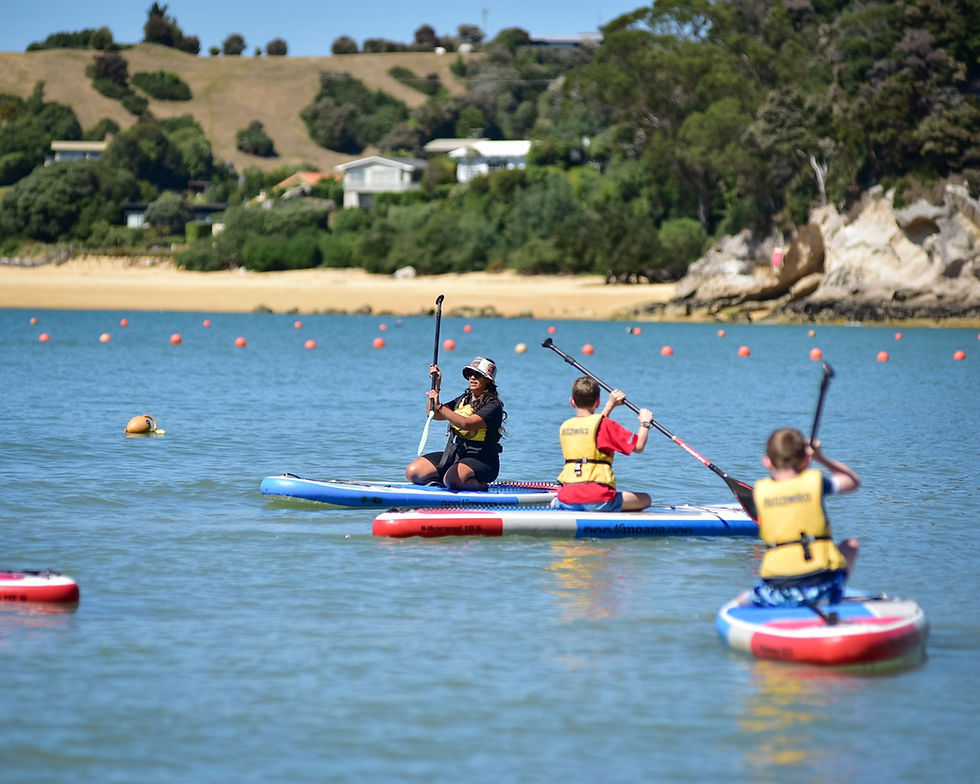The Centre for Brain Research Freemasons Neurosurgery Research Unit: bridging surgery and science
- Dec 5, 2023
- 3 min read

Above (Left to right): CBR neuropharmacologist Professor Mike Dragunow, Auckland City Hospital neurosurgeon Mr Chien Kow, Sir Richard Faull and Mr Andrew Law.
World models in neurosurgical care show that whenever brain surgery is undertaken in an environment of innovative research, patient care and the development of innovative treatments will follow. Our very own model of this now exists in Aotearoa New Zealand and was formally launched on the evening of 19 September at the University of Auckland’s Centre for Brain Research (CBR).
Director of the CBR Sir Richard Faull says that one of the centre’s most ambitious developments through the years has been establishing this model of an ‘Academic Neurosurgical Unit’; that is, a committed and collaborative unit where neurosurgeons are able to devote a portion of their time to research.
Ten years ago, a fundraising campaign was launched to fund the unit and Sir Richard met with the Freemasons in the early stages. And, he says, “They understood our vision, they understood our dream, right from the start.”
The Freemasons made the first, ground-breaking donation. Sir Richard says, “This incredible gift from the Freemasons of $2 million in 2013, and that of other philanthropic funding, has resulted in a unique research relationship between our researchers at the CBR and Auckland Hospitals’ top-class neurosurgeons. Really excitingly, we have built up a significant body of research together over this time.”
The overarching aim of the unit is to facilitate collaborative world-class clinical research innovation between neurosurgeons in the hospital and neuroscience researchers and pharmacologists at the CBR, in order to enable therapeutic drug discovery and development, and critically, improved outcomes for neurosurgical patients.

Above (Left to right): Professor Russell Snell, Freemasons NZ Grand Master Jim Watt and Professor John Fraser at the launch event for the Freemasons Neurosurgery Research Unit.
Current studies are many and varied and include novel surgical practices in epilepsy and neurotrauma (traumatic injury to the brain), and the development of drugs and advances in technology for brain tumour treatment.
This ‘bench-to-bedside’ approach also involves the incredible support and generosity of neurosurgical patients. Sir Richard says “Remarkably, we are now receiving the tissue resected by our neurosurgeons in biopsies or surgery on living patients with brain tumours and epilepsy in ‘real time’ (the CBR is a stone’s throw away from Auckland City Hospital). Professor Mike Dragunow and his team at the CBR Hugh Green Biobank can proliferate cells from this tissue, and we are now at the stage of being able to test drugs on these cells with the hope of identifying new therapies for patients in the future. The Freemasons’ support has facilitated this progress in a few short years. Isn’t this extraordinary?! We are immensely grateful to the Freemasons for their ongoing support to make our visions and dreams come alive.”

The CBR wished to acknowledge the ongoing impact of the Freemasons’ seed donation by bestowing the unit with the formal title of the CBR Freemasons Neurosurgical Research Unit. The name was unveiled at a special 19 September event hosted by the CBR which featured presentations from three of Auckland City Hospital’s six neurosurgeons - Mr Andrew Law, Mr Jason Correia, and Mr Chien Kow – Sir Richard, and Professor Michael Dragunow, neuropharmacologist and Director of the CBR Hugh Green Biobank.
Co-Directors of the CBR Freemasons Neurosurgery Research Unit are CBR pharmacologist Professor Michael Dragunow and Mr Jason Correia, Neurosurgeon Auckland City Hospital.
Above photo (left to right): Auckland City Hospital consultant neurosurgeon Mr Jason Correia with Catherine Tanumihardja, CBR Neurosurgical Nurse Specialist at Auckland City Hospital.



